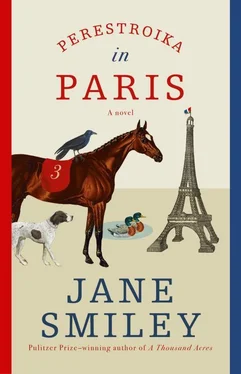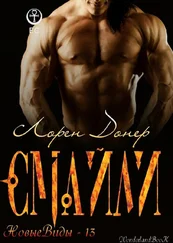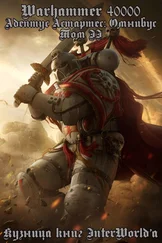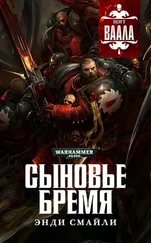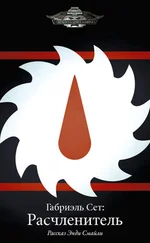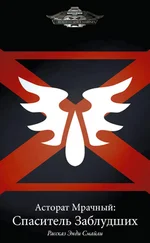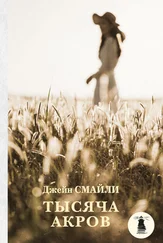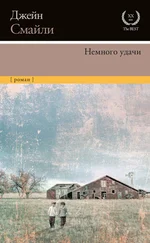She turned to look left and then right. Kurt felt as if he was being spun around, but he held on.
She said, “You’re not that heavy. About the same as a bridle. But try to stay in the middle. It’s easier to balance you.”
She walked into the grand salon, went to look out the window. Kurt thought he might be sick, what with the beets and all. Down. Up again. A noise from the staircase—Paras’s head swung to look.
Étienne’s footsteps on the stairs. Paras knew that Kurt was afraid of Étienne, and since she generally took things as they came, she didn’t try to dissuade him. But now she did a kind thing—she carried him over to the entrance to his tunnel and put her head down. He let go and dropped, sliding part of the way down her forelock. He went into the tunnel, which was dark and cool—relaxing, really. As he headed up the tunnel to his bedroom, he decided never to do that again, sit on her head. But he knew that he would, that sitting on her head was, perhaps, his best bet for getting out into the world and finding his doe, his desired mate.

RAOUL HAD a winter project, too—making his most superior nest ever, the roomiest, the coziest, and the most aesthetically avant-garde (he had woven in several strands of silvery Christmas decorative materials so that they glinted in the moonlight in a pleasing pattern that reproduced the random effect of stars). He was now sixteen. Of course, that was in human years. An avian “year” had nothing to do with the sun or the earth, it was called a “segment,” and had to do with vegetation and migration. He had lived for fifty segments, ten of them in Paris. Every male Corvus, upon reaching the age of fourteen segments, was required to challenge those around him in three ways—flights, speeches, and combat. Outside of Paris, these challenges were ritualized and traditional. For example, the topic of most speeches was either insect varieties or grains. Flights were sometimes for distance, sometimes for speed. Combat was ritualized, too—the old fellow who might lose the battle simply moved his family to a nest in a less prestigious tree—say, from a walnut to a beech. Relations in Paris were more chaotic and less friendly, and Raoul had been hard put to fend the youngsters off. Sometime soon, he would have to move his nest away from the statues of Benjamin Franklin, accept his banishment. And, yes, he was lonely. It didn’t help that Paras and Frida seemed perfectly happy and not much in need of his advice over there at that creepy empty house with that poor child, that ancient humanlike creature, and that rat.
He might have done what he used to do—observe humans and Aves and develop his theories—but no one wanted to hear his theories. Tonight, his dissatisfactions were nagging at him, so he groomed himself until the roots of his feathers ached, and still could not settle in. The Place du Trocadéro was dead—all the cafés were closed; the two buildings of the architectural museum were like blocks of ice. Even the lights in the great Tour across the river looked rather forlorn. Raoul hopped to a higher branch, then spread his wings and flew, first upward, over the metal man on the metal horse; then he glided down the esplanade. The moon was a small pale crescent. He floated over the river, banked left. No one at all in the Champ de Mars except Mademoiselle Paras, trotting briskly across the damp wintry turf, her forelock bobbing, her tail up, and her nostrils flared. She was making plenty of noise, but the windows of every house were dark. Raoul circled her once, then landed on her rump. She snorted and said, “You can fly. You don’t need to hitch a ride.”
“I can’t fly and talk to you at the same time.”
“Other birds do.”
“That is a misapprehension on your part. They are proclaiming, they aren’t conversing. If we want to communicate, we park. I am parking on your hind end. You might halt.”
“I’m hungry, and I don’t want to be late.” Nevertheless, she slowed to a walk.
“Where are you going?”
Paras explained about Anaïs, the baker: “She has access to grain. All different types of grain, in fact. You can’t eat kale at every meal and expect to maintain your strength.”
“I keep telling you Mammalia that insects are a wonderful source of energy and piquancy.”
“How many flies would I have to eat per day? I weigh four hundred and fifty kilos.”
Raoul admitted, though only to himself, that this might present a problem. He said, “A bird eats seven times its weight each day.”
“How much do you weigh?”
“Over a kilo. Maybe a kilo and a quarter.”
“Ignoring the fact that I could not possibly process three thousand kilos of food every day, I also do not believe that you process seven or eight kilos of worms, flies, and frites every day.”
Raoul didn’t say anything. He flew off her rump, and she rose to a light trot. She had come to pavement, so her hooves made a crisp sound, but since she had lost her shoes a month ago, she no longer clanged. She turned left. Raoul followed her to the shop, where there was, indeed, a youngish human female working at a large table on the other side of the lighted window. Just as Raoul saw her, she glanced in their direction, smiled, and came to the door, which she opened. She exclaimed, “Good evening, dear girl!” Paras, who had dropped to a walk, and then halted, rested her chin gently on the woman’s shoulder and snuffled a polite greeting in her hair. The woman patted her cheek and moved her forelock out of her eyes. Raoul found a perch on an empty vegetable display case in front of the shop next door. With mammals, it was an everlasting round of love, hate, sadness, gladness, fear, and anger. All Aves knew that mammals said of themselves that they were “higher” than other animals. And all Aves dismissed this idea with a laugh.
Anaïs had become more comfortable with Paras. She had been sure that the horse would have been caught by now, but as far as she could tell, the horse was not even discovered. Certainly, where the horse lived was a mystery to Anaïs herself. On the day she heard that phantom whinny—before Christmas, it was—she had wandered around the Champ de Mars and seen no sign of a horse. Anaïs had then decided that Paras was a spiritual embodiment of some sort—one result of her very religious upbringing was that, although she rejected doctrine, she didn’t mind visitations. And she knew from all the stories she had heard as a child that if a god or a spirit asked something of you, your job was to provide it in good faith and with a happy heart. And so she did. The horse came three or four times a week. Her provisions added maybe 1 percent to the wholesale expenditures of the bakery and the café, so Anaïs raised the prices of some of the luxury items that her customers should not be eating anyway, like chocolate croissants and lemon tarts, to cover it. And though Paras only trotted away when she was finished with her grain, and was not, at least for now, flying Pegasus-like into the empyrean, Anaïs had a remote hope that something amazing would happen someday—say, on the vernal equinox.
Anaïs loved her job, but since she was up all night, hers was a rather lonely life. She was isolated from her family because of the religious disagreements, and all of her friendships were based on business, not a sense of connection. She was now in her thirties, unmarried, hadn’t had a boyfriend in four years, so it was a great pleasure to pet the horse, to feel the warmth of her coat underneath her mane, to sense her kindness and her enjoyment of the food Anaïs put together for her (tonight, a combination of wheat berries and flaxseed, with grated carrots mixed in). She rested her shoulder on the horse’s neck, closed her eyes.
Читать дальше
